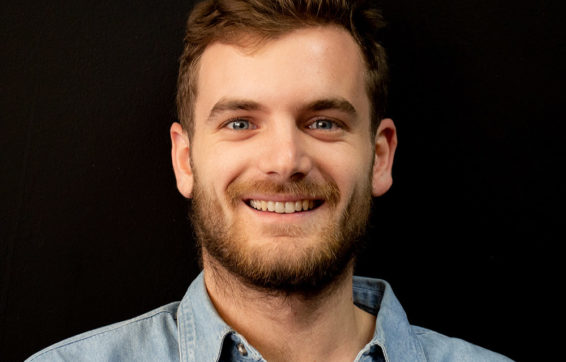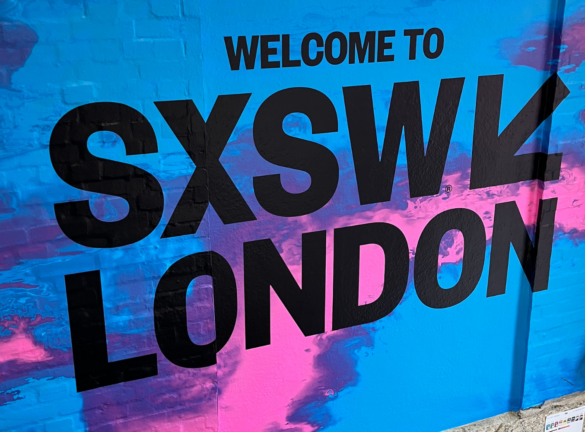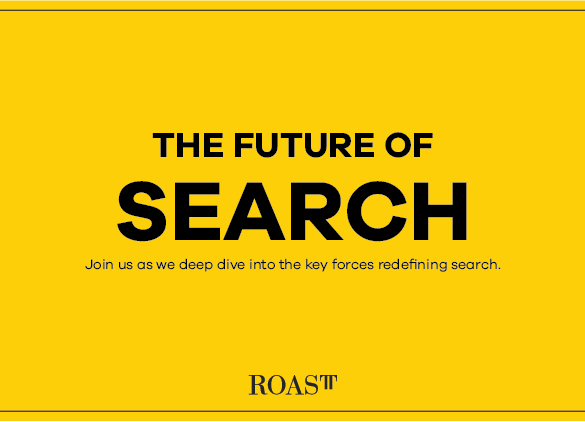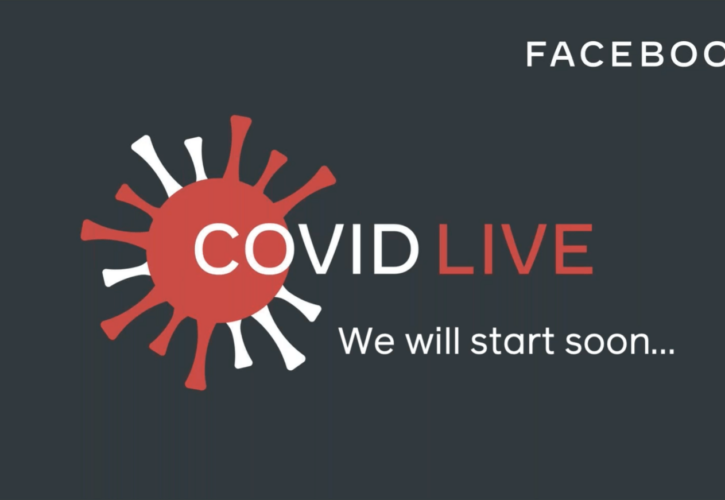
Insights from Facebook EMEA’s sixth COVID LIVE Webinar
Facebook EMEA’s sixth COVID LIVE Webinar was delivered on Wednesday 29th April. Below are the key insights from the session:
1) Covid fatigue
There is a growing sense that we will have to adapt to COVID-19 becoming a part of ‘normal life’ for an extended period of time, with Mckinsey reporting that 63% of UK consumers believe adjustments to routines due to the COVID-19 situation will continue for at least four months.
The most common concern now is not about health or finance, but how long the situation will last.
Instagram and Facebook both show that engagement with COVID-19 posts is declining and is currently down 55% or more on its peak.
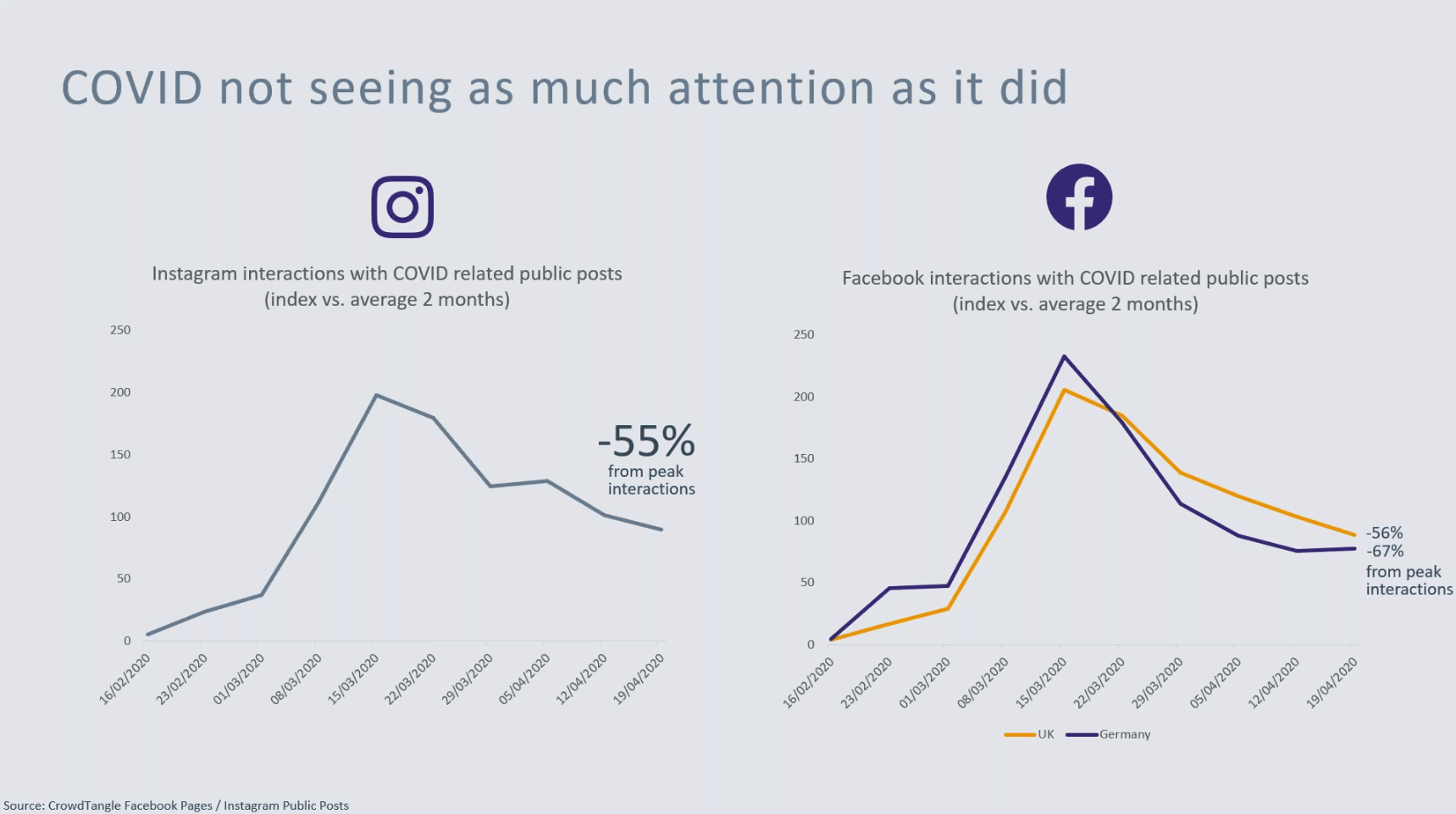
Data from YouGov reinforces this, showing that across the UK and Germany the number of people searching for and reading more news content is decreasing.
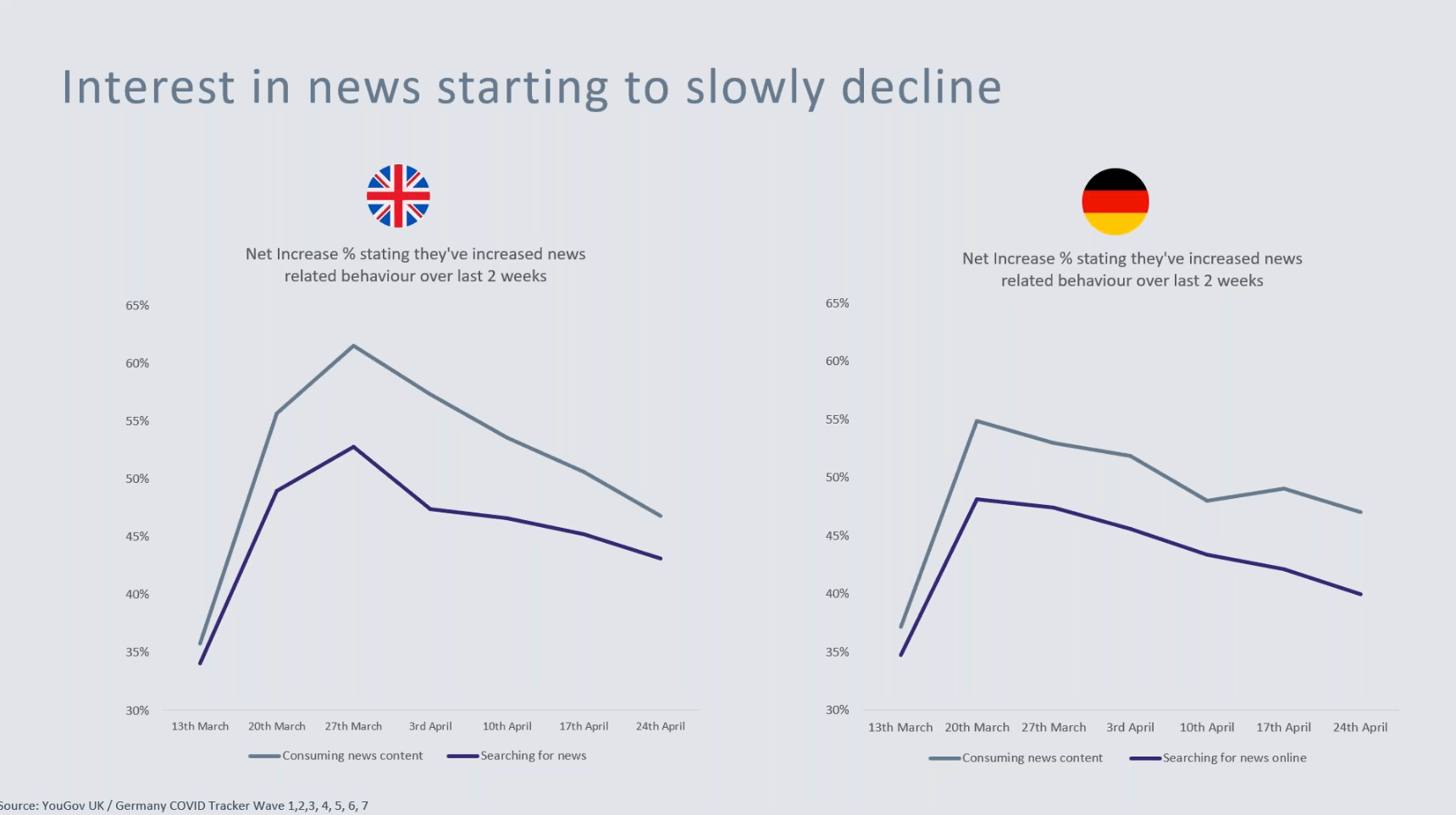
Alongside this, traffic to the COVID-19 Wikipedia page has fallen 70% and BARB have reported that where seven out of ten of March’s most watched TV events were News-related, in April it was only one out of ten.
Despite COVID-19 fatigue, consumers still want to hear from brands and know how they are reacting. The latest IPSOS survey showed:
- 70% consumers completely agree with “I want to continue to hear from brands and companies on what they have to offer and what they stand for”
- 64% completely/somewhat agree with “I expect companies to acknowledge today’s crisis and situation in their advertising”
- 10% completely agree “Brands that advertise during today’s climate are tone deaf”
When it comes to what brands are communicating, it varies hugely by category. Analysis of the Facebook Ad Library shows that 57% of CPG advertsieres had made an explicit reference to COVID-19 or lifestyle changes over the last seven days, whereas at the opposite end of the scale 0% of Entertainment advertisers had done so.
Brands need to be asking:
- How is my category adapting it’s messaging to the new everyday?
- What tests are we running to ensure our strategy maximises connection?
2) The new normal, isn’t normal
As some countries start to loosen their lockdown restrictions, it is becoming clear that things will not simply return to how they were.
Using Germany as an example, we can see that people are lagging in changing their behaviours.
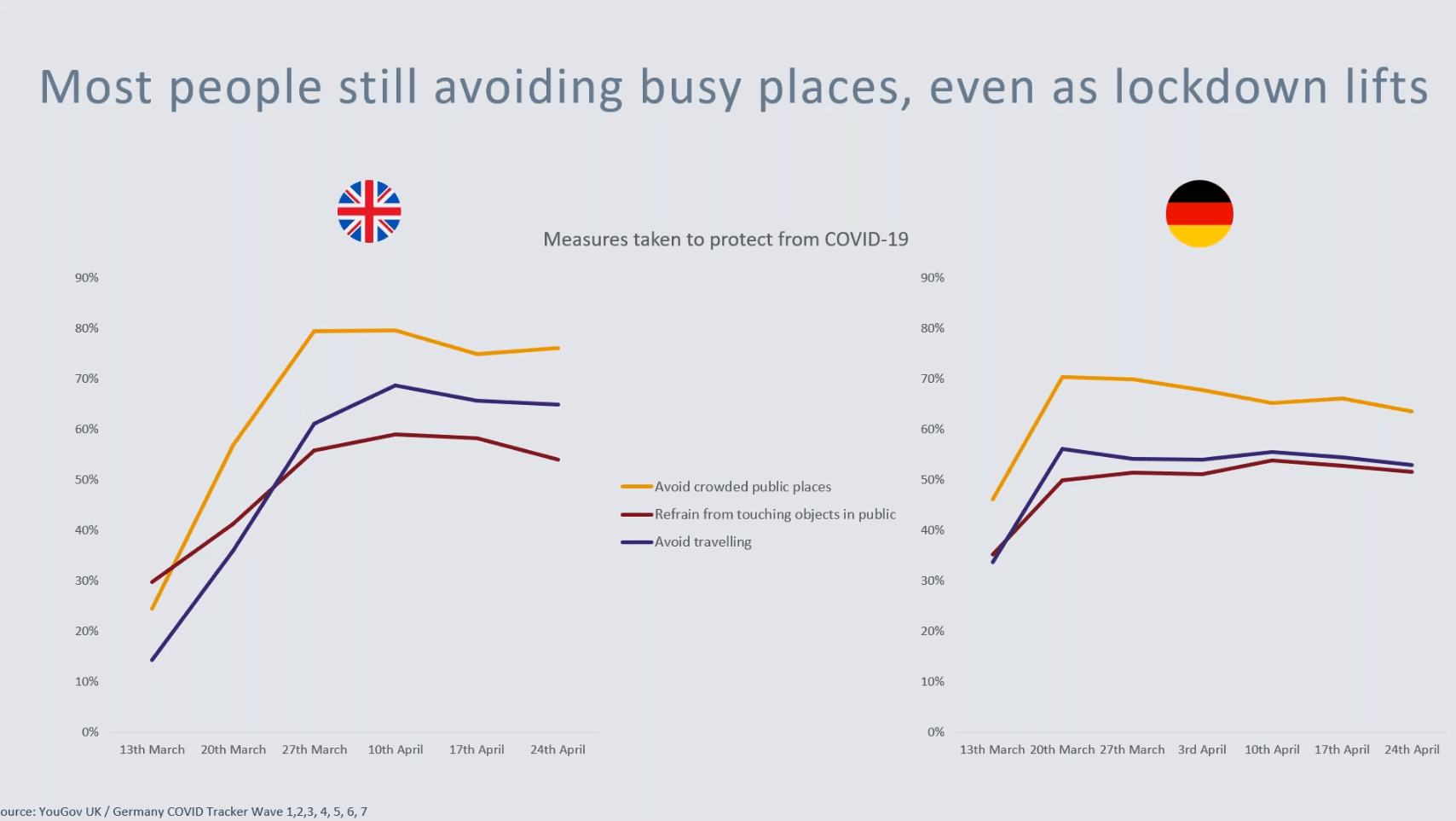
For some businesses, this could add to their misery. For example, only 32% of the UK population are saying that they will be comfortable returning to pubs and bars after the lockdown is loosened. It is clear that these businesses will have to work hard to bring back their customers.
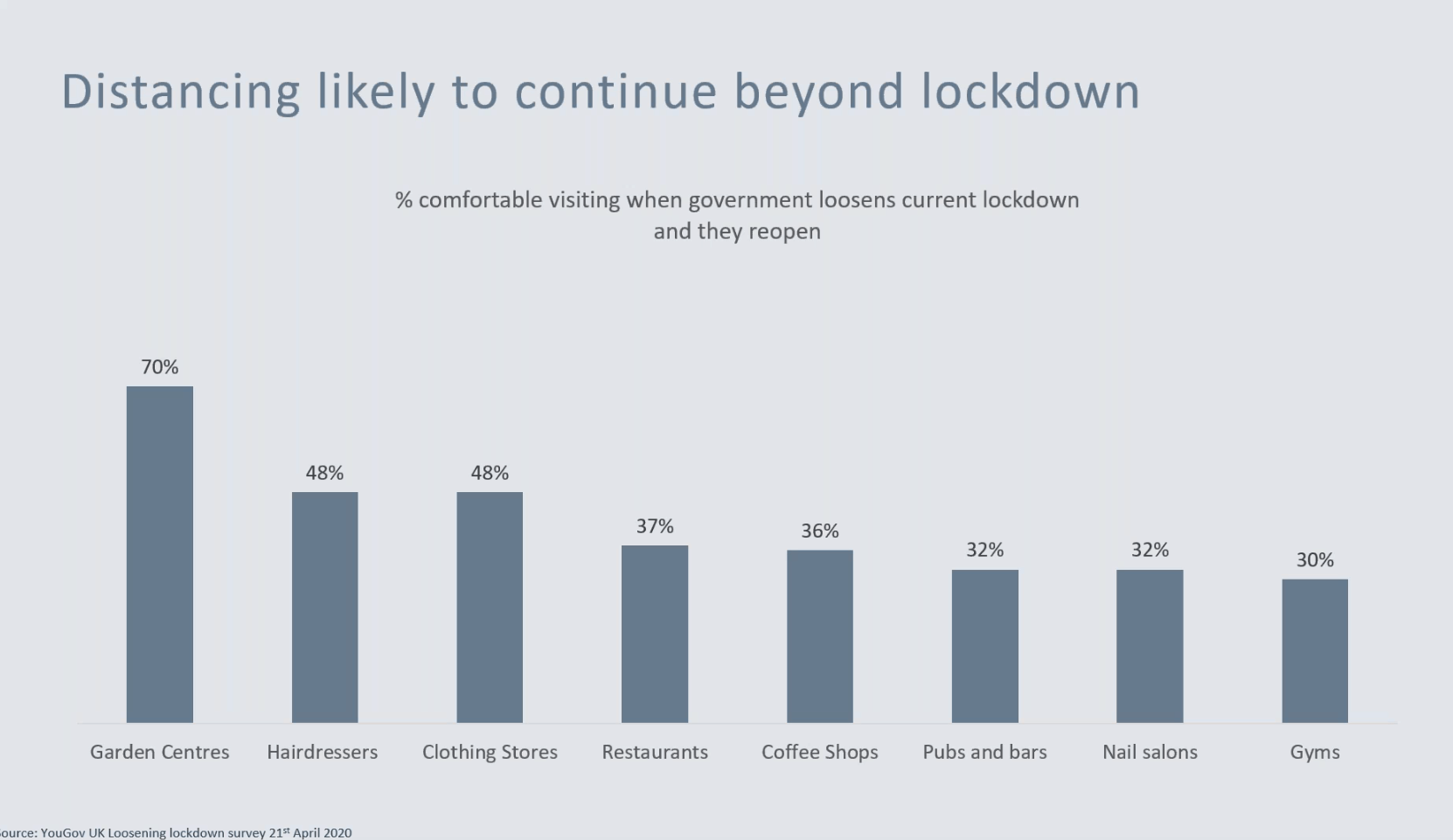
Despite the pandemic being a global event, different markets are behaving in different ways. There is considerable difference in consumer attires, with IPSOS’ survey showing that 71% of UK consumers agree that ‘Even if businesses are allowed to reopen and travel resumes, I’m going to be very nervous about leaving my home’, compared to only 44% in Germany.
This national difference is also reinforced more granularly by data from Mckinsey, who show that, for example, here is expected net intent of +17% for domestic travel Germany post-lockdown, compared to net intent of -8% in the UK.
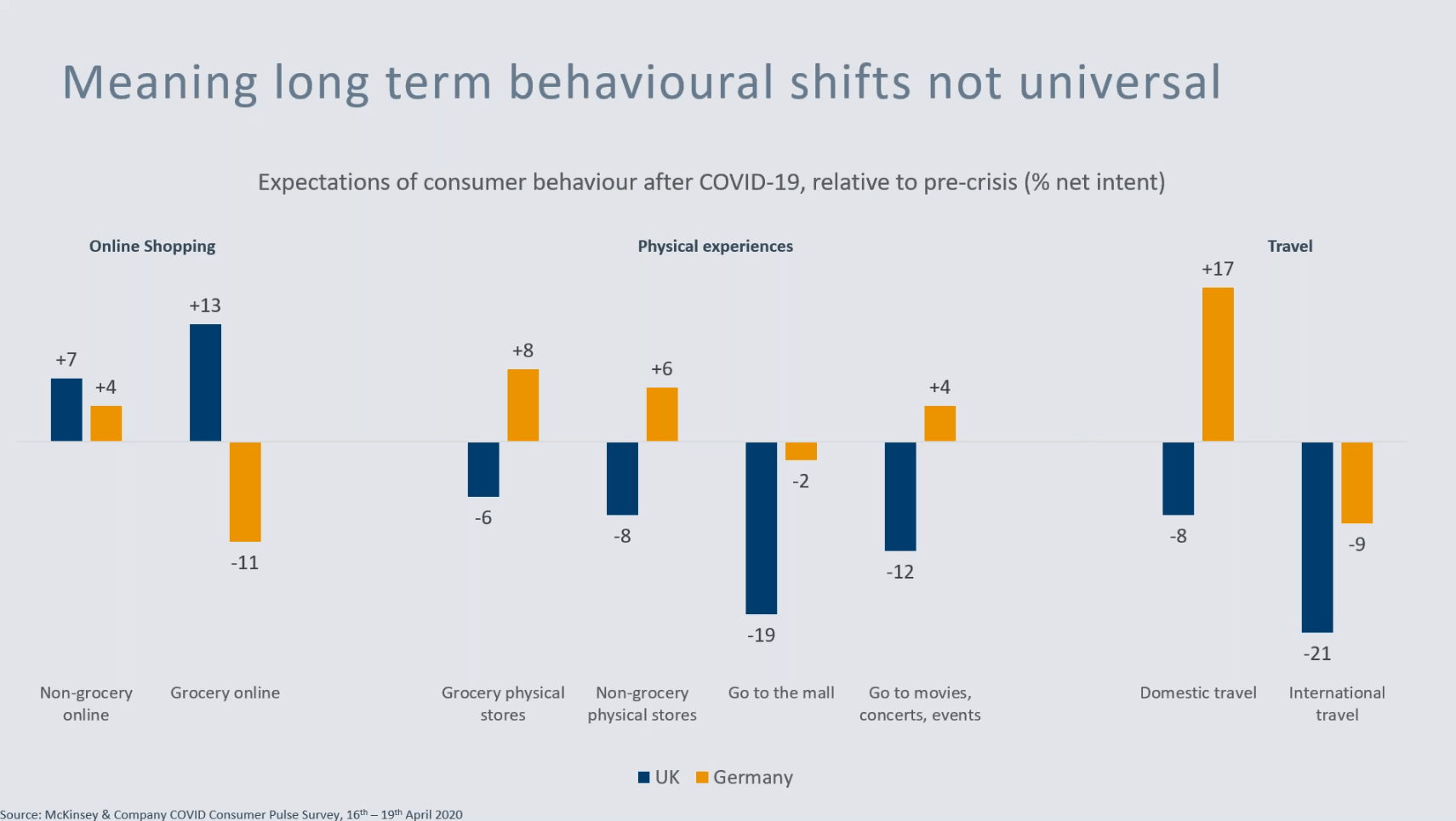
Brands who have been waiting for the storm to pass must now think instead about how they will learn to deal with a new normal.
Many brands are already retooling for a contactless world with:
- Pret A Manger reopening with no cash and perspex guards
- Vue Cinema looking at staggered seating
- Zizzi’s and ASK exploring contactless waiters
- John Lewis introducing virtual stylists on Instagram.
Facebook have been updating their platforms for the new normal, introducing ‘Rooms’ (a Housepary style group video chat function) which is now live on Facebook and coming soon to Instagram and Whatsapp.
They are also introducing functionality for taking payments over Live – so that people can charge for live demonstrations of popular locdown activities such yoga or cooking. As well as this they are bringing Virtual Dating to Facebook Dating.
Brands need to be asking:
- What opportunities are there to help people live a more contactless life today?
- How can we remap our customer journey through a contactless lens?
- How should our brand retool?
3) A move to collectivism: From “Me” to “We”
The pandemic has caused a real shift in how we empathise and engage with our local communities, and many are now prioritising ‘we’ over ‘me’.
There has been a collective recognition of how individual micro-actions can aggregate to make a huge difference, and in the UK two million of us have joined local support groups set up to help with COVID-related issues. Furthermore, 58% of us feel like our relationships with friends and families could get stronger because of Coronavirus and 46% of us are also spending more time texting, chatting and messaging our loved ones.
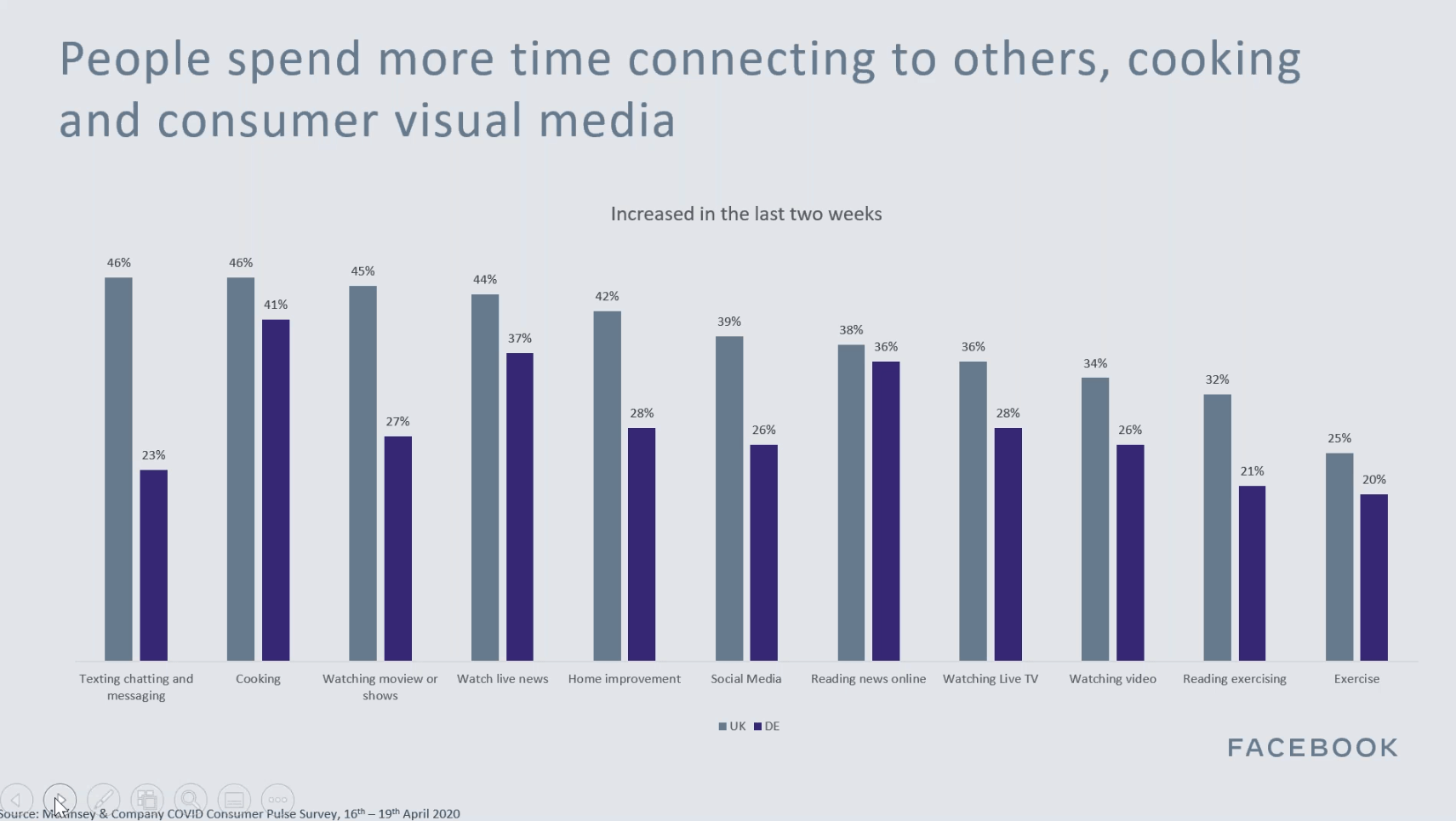
We are also experimenting with new behaviours, both virtual and physical.
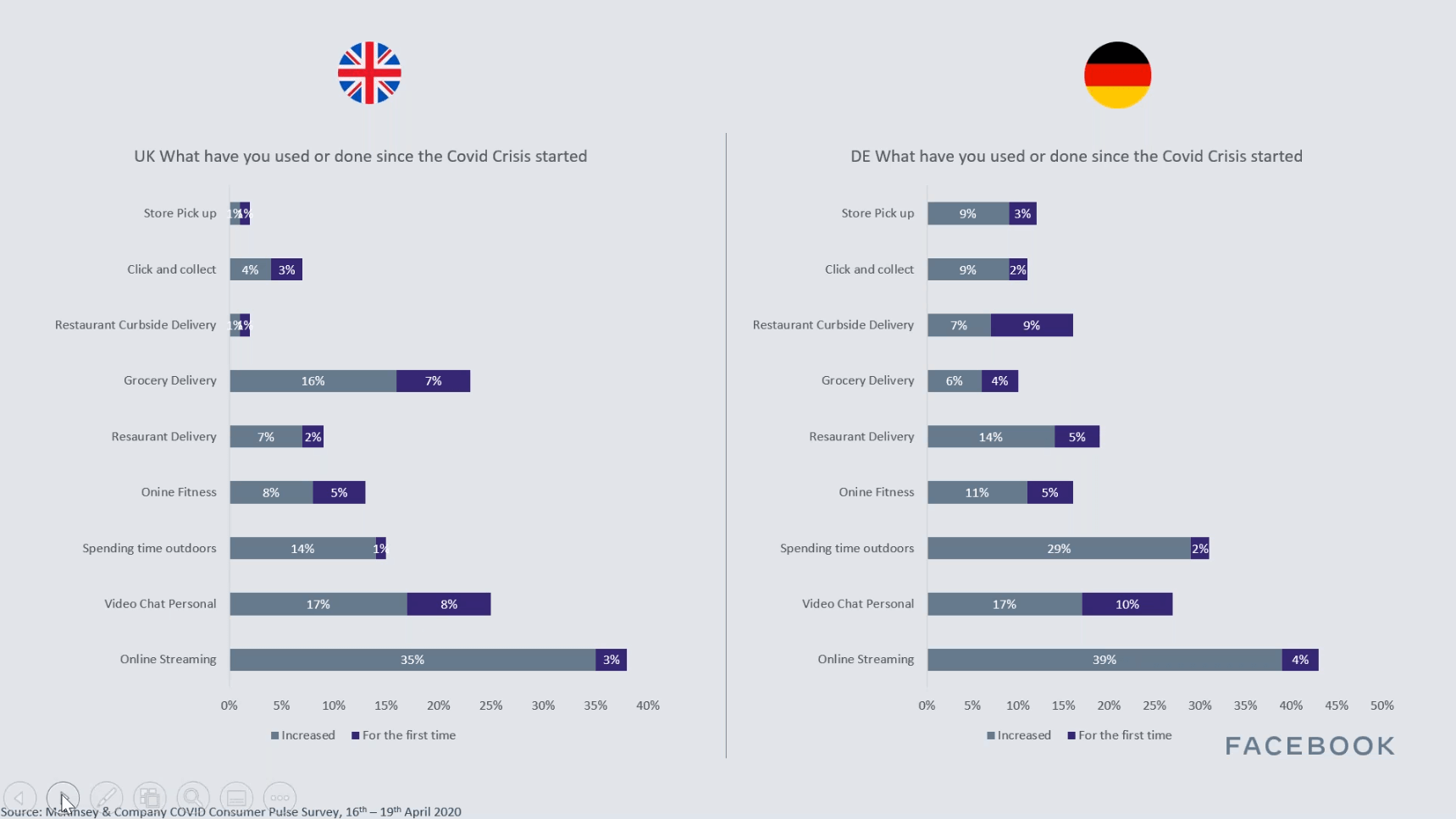
Alongside the rise in localism we are seeing a healthier spirit of international collaboration. Despite finger-pointing over the ‘Chinese virus’ and the international struggle for ventilators and PPE, we are seeing empathy and charity spread across the world. People are realising that this is a crisis without borders – the most shared global experience ever – and wehen we’re all in it together previously disregarded international bodies such as the UN and WHO become crucial.
For brands, supporting communities has never been more important, and Michelob, Budweiser and Guinness have all done great work in this area.
In fact, all of the best brand communications going out at the moment fit into three categories.
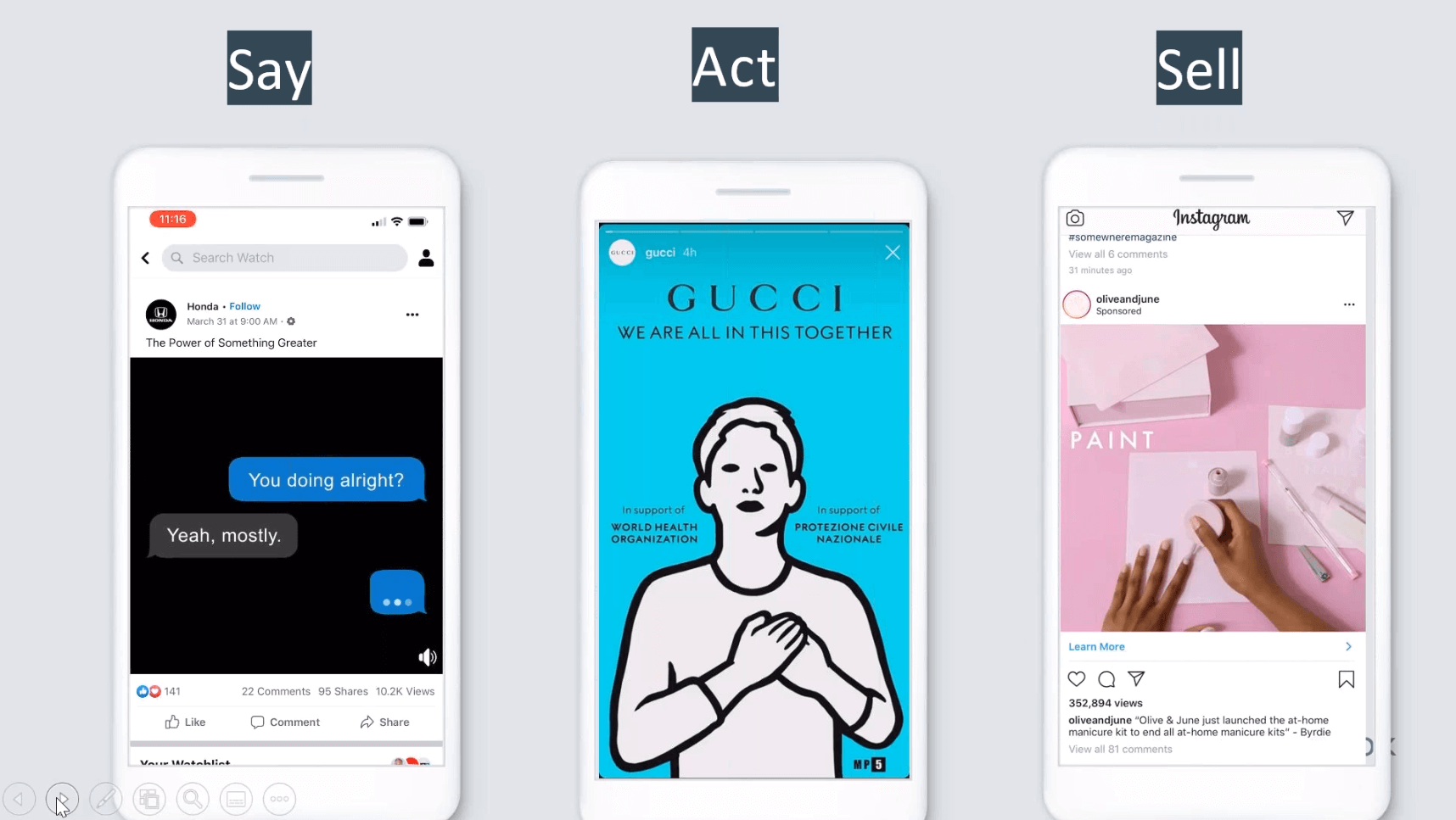 Say
Say
Say
- Safety tips: physically & emotionally
- Compassion & appreciation
- Entertainment
Act
- Donations & drives
- Repurposing production
- Flexibility & financial relief
Sell
- Contact-free commerce
- Bespoke deals & discounts
- Escapism & DIY self-care
If your brand communications aren’t falling into any of these categories, then it may be time to rethink your strategy.
Thanks to the Facebook EMEA team for another informative session. We will be back in two weeks time with our next write up.
For more COVID-19 insights, read our summary of last week’s COVID LIVE, or download our whitepaper on The Effects of COVID-19 on Search Behaviour


